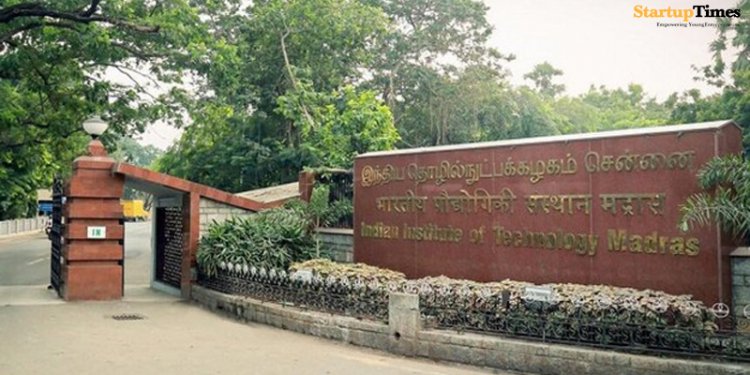IIT Madras sets up a centre to study the Indian startup ecosystem.
The Indian Institute of Technology, Madras(IIT-M), has inaugurated a Centre for the Research on Startups and Risk Financing(CREST) to commence research in the domain of innovation, risk capital, and entrepreneurship, specifically in the startup segment of our country.

On 23rd June 2021, the institute declared that CREST was being set up to bring on board scholarly research covering the parameters of innovations, entrepreneurship, and risk capital. A data depository will also be created on Indian Startups, ventures, and investors which will be made accessible for startups, investors, and policymakers to uplift and develop the startup community.
“There are several aspects of the Indian startup ecosystem that need to be studied. For example, looking at the factors that are crucial for decision-making for investors when they back a startup or examining the mortality among startups to understand what worked for them and what didn’t. While there are many incubators across major educational and research institutes, we aim to also study how effective these incubators have been,” said A Thillai Rajan, principal investigator, CREST, and professor, Department of Management Studies at IIT-M.
Rajan said these researches and their output will be quite helpful for startups and investors as well as policymakers at every step and in quick decision making any time.
“The role of higher education institutions in the area of start-ups and entrepreneurship is four-fold. The first is the creation of intellectual property that can be commercialized through startups. The second is to train for entrepreneurship through various formal and unstructured programs. The third is to provide a nurturing environment for startups by setting up incubators and providing access to various facilities to young startups. The fourth is to generate insights through rigorous research that can inform and guide policymaking and practice. While substantial progress has been achieved in the first three, much needs to be done on the fourth,” Rajan added in his statement.
Bhaskar Ramamurthi, the director, IIT-Madras, said, “These research initiatives we (IIT Madras) are creating, almost all of them, have very strong international collaborative connections. We are knitting together partnerships with leading groups across the world. We want to have a strong flow of people and ideas. We will have the interactions in online mode till the pandemic gets over.”
Rajan said that while the centre is primarily aimed at research, one of the goals is to increase cross-country research collaborations. “If we find an international collaborator and a need for some courses arises, we may plan such courses as well,” he added.













